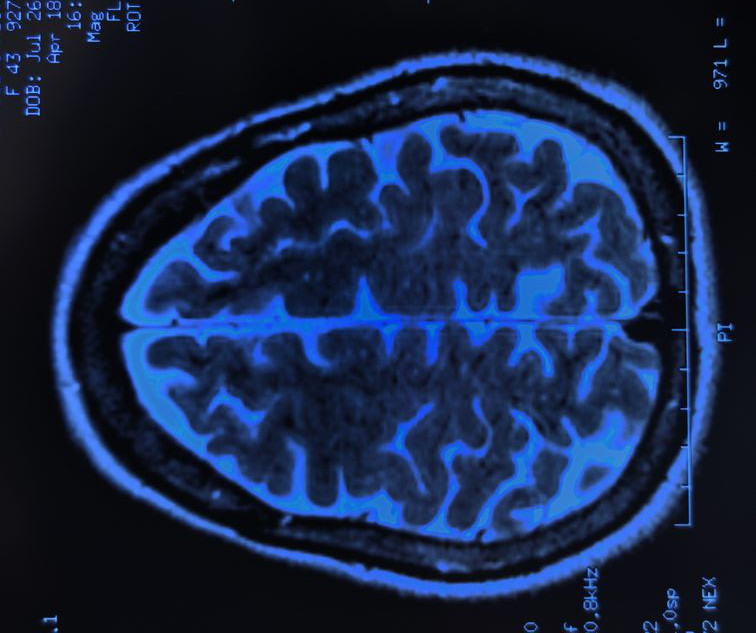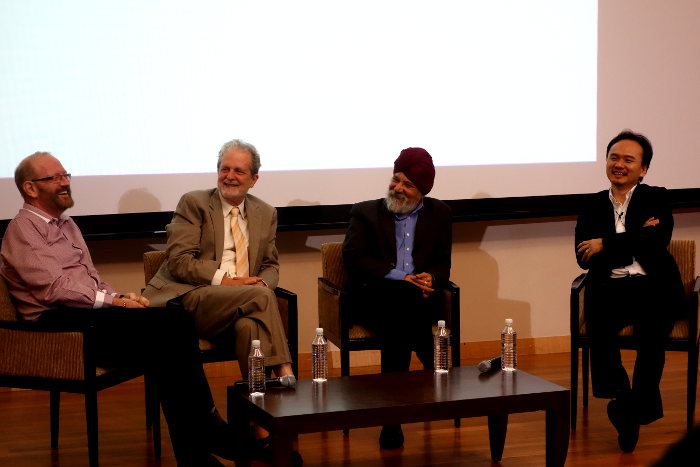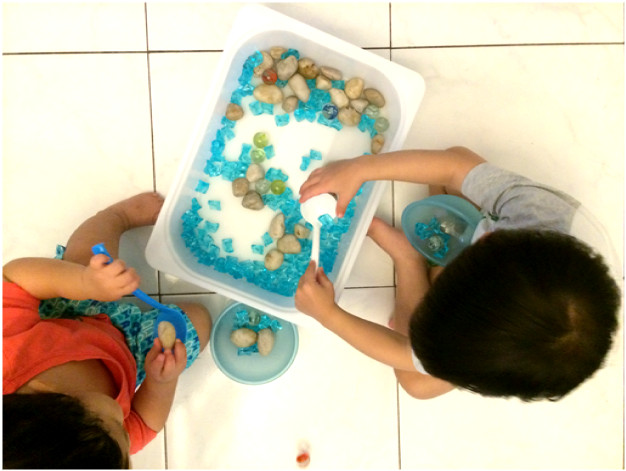Do you often struggle with having many activities to do within short time frames?
As a parent, your responsibilities may pile up even more when balancing work with family, while still trying to squeeze in some time for yourselves. This busy lifestyle can mean neglecting a healthy diet and exercise.
All these activities stress your brain, and coupled with a nutrient-poor diet or lack of exercise, can result in decreased mental function.

Brain decline starts at 20
Many people assume that brain aging only occurs when you are about 70-80 years old, when in fact, brain aging, or age-related cognitive decline, starts as early as age 20.
The psychological signs of brain aging become noticeable as early as age 40 and include increased mental fatigue, forgetfulness and brain fog.
As a parent, it is important for you to start taking care of your brain health to ensure you are alert and have the mental energy to care for your children and enjoy quality time with them.
What is cognitive decline?
Age-related cognitive decline is the natural deterioration in our cognitive capabilities as we age. This decline starts in our early 20s, with the physiological effects showing in our 40s. During this gradual decline, we begin to feel as if we are no longer performing at peak mental capacity and the demands of modern-day life, like multi-tasking, can become increasingly difficult to manage.
What are the signs of cognitive decline?
The most common signs of brain aging are declining processing speeds, loss of focus, difficulty sustaining mental energy throughout the day, and impairment in our memories and ability to learn.
Other symptoms of brain aging are listed below:
- Forgetfulness and misplacing things
- Difficulty planning or solving problems
- Trouble communicating effectively
- Noticeably slower at doing intense mental tasks
- Lowered ability to focus on specific tasks and handle multi-tasking
Common misconceptions associated with brain health and cognitive decline

- Myth 1: Brain aging is only a problem for the elderly
When I speak to people about brain aging, they immediately assume I’m speaking about someone in their 70s or 80s. However, we should be thinking about our brain health as early as in our 30s to 40s, when our brains start to slow down. Studies have shown that regular exercise and a healthy diet can slow down brain ageing and other chronic conditions.
- Myth 2: Genetics determine outcome
“My mom had dementia, which means I will as well”.
Some people seem resigned to the fact that they will get dementia just because their relatives had it.
In reality, there are few clear genetic markers that can predict dementia with a high level of certainty. While there are some genes that have been correlated to increased risk of certain diseases, genetics are a poor predictor of the health of an aging brain.
- Myth 3: Cognitive decline is inevitable
Another common misconception is that cognitive decline is inevitable.
The brain, while incredibly unique, is still an organ that can be impacted by our lifestyle and daily decisions.
Taken together, current research suggests that brain aging may in fact be a reversible process – or at least a process that can be manipulated.
How to maintain a healthy brain

Many people will commit to exercise, specific diets and taking certain supplements to improve various aspects of their health, but forget about their brain. Here are tips to stay sharp and focused when caring for your children:
- Exercise regularly – Many studies and research conducted from all around the world have shown exercise to be one of the most effective treatments to ward off brain aging. Exercising has a holistic benefit on both our body and mind and can keep illnesses at bay as well as improve mental performance.
- Choose the right supplements – If you are looking to do more, look for supplements designed to enhance your brain’s mental performance so you can stay sharp at home, especially when juggling tasks and caring for your family.
- Don’t ignore stress – Studies have shown that chronic stress is linked to premature brain aging. As such, always ensure you de-stress regularly after challenging tasks. Some ways to de-stress include watching a film, exercising, spending time with your family and loved ones or engaging in your favorite hobby.
- Constantly engage in social activities – Your child’s playtime is not just for them. Use this opportunity to socialize with other parents and build healthy friendships with them. Other examples of other brain-stimulating activities include group exercise activities, learning a new language or sport, or picking up a new skill like painting!
- Cooking a balanced diet for you and your family – A diet that contains unhealthy fats and sugars can cause a decrease in brain function. Always remember to make sure you and your family keep a balanced diet which includes plenty of fruits, vegetables, vitamins and minerals and water to improve brain health.
- Don’t have irregular sleeping patterns – A lack of sleep or irregular sleeping patterns can accelerate brain aging. It is important to ensure that you have regular sleep every day to give your body and mind a rest.
If you have any questions or concerns about your brain health, be sure to get in touch with your local doctor.
How we can ensure that we purchase the right credible health supplements for themselves and for our children?
Always exercise caution when purchasing supplements, especially for your children, and make sure to do your own research first. It is important to remember that children are not little adults, their brains are very different. Quite often children are given supplements designed for adults, which may have development consequences that we do not understand yet.
At a minimum, you should look out for credible supplements that have been manufactured under stringent conditions in a GMP-certified facility and have undergone finished product testing for pesticides, heavy metals, microbial contaminants and other impurities. You can also look to your country of origin (products from Canada will likely have most of these tests).
Generally speaking, children should not need supplements if they have a balanced diet and are getting lots of exercises.
There are far more studies about the benefits of exercise and diet than any type of supplement on children. When it comes to children under 18 years of age, it may be better if they are exposed to gym or music, rather than taking supplement pills with unknown developmental consequences.
These questions were answered by Dr Shawn Watson, neuroscientist, Founder and Chief Executive Officer of Senescence Life Sciences.
* * * * *
Like what you see here? Get parenting tips and stories straight to your inbox! Join our mailing list here.
Want to be heard 👂 and seen 👀 by over 100,000 parents in Singapore? We can help! Leave your contact here and we’ll be in touch.


























































Leave a Comment: